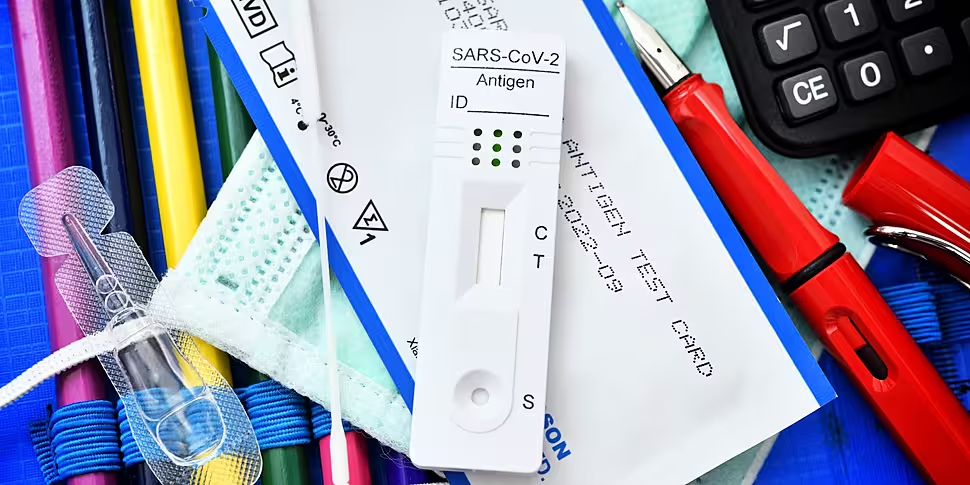Antigen testing in schools could offer false reassurance to parents and students if not used correctly, according to infectious disease specialist Professor Sam McConkey.
The Health Minister Stephen Donnelly has said he expects to see antigen tests being used for close contacts in primary schools before Christmas.
Speaking to On the Record with Gavan Reilly yesterday, he also said the Government was considering reintroducing contact tracing for school close contacts.
On Newstalk Breakfast this morning, Professor Sam McConkey from the Royal College of Surgeons said the antigen tests will only work if they are used correctly.
“If somebody is at a sleepover the previous night and uses an antigen test tomorrow, that is too early for the antigen test to show up as a positive,” he said. “They don’t pick up very low levels of virus.”
“You would really need to be testing at Day Five and Day Ten and then using those results appropriately.
“So, I worry that false-negative results, particularly early after a child has been in contact with somebody else with symptoms or with COVID, might falsely reassure the child and their parents.”
Serial testing
Professor McConkey said a system whereby all students are tested on a regular basis would be more effective.
He said that strategy could be used in a range of different environments.
“Regular testing may have a role, particularly for those of us working in healthcare where we really don’t want to put our vulnerable patients into harm’s way,” he said.
“There is potentially a role for high-risk people, particularly if you are vulnerable to COVID.”
COVID-19
Yesterday, 3,428 new COVID cases were announced yesterday – the sixth day in a row daily case numbers have been above 3,000.
There were 478 patients in hospital - down 22 on the previous Sunday - and 75 in intensive care – down 18 on last week.
Professor McConkey said people need to take personal responsibility to contain the spread – reducing their social contacts, wearing masks and spending more time outdoors and in well-ventilated spaces.
“Other countries, say Spain and Portugal, have been able to find that sweet spot,” he said.
“We have learned now that vaccination alone, even with our high coverage, is not enough on its own to control the spread of disease.
“So, we are still going to have to, not go back to the behaviours of 2019, but embrace a new normal and that includes masks and ventilation and so on.”
Boosters
He said boosters will “almost definitely” be needed across the wider population but again suggested Ireland should wait until the next generation of vaccines are available before administering to younger people.
“The big question is when is the optimal time to give the boost and which booster vaccine is optimal,” he said.
“The vaccine, if you were to get it or I was to get it today, is the one developed for the strain of Sars-Cov-2 from December 2019 and that is almost two years ago.
“There are new booster vaccines coming which are against the recent strains, the Alpha the Delta plus and perhaps even new ones.”
You can listen back here:









